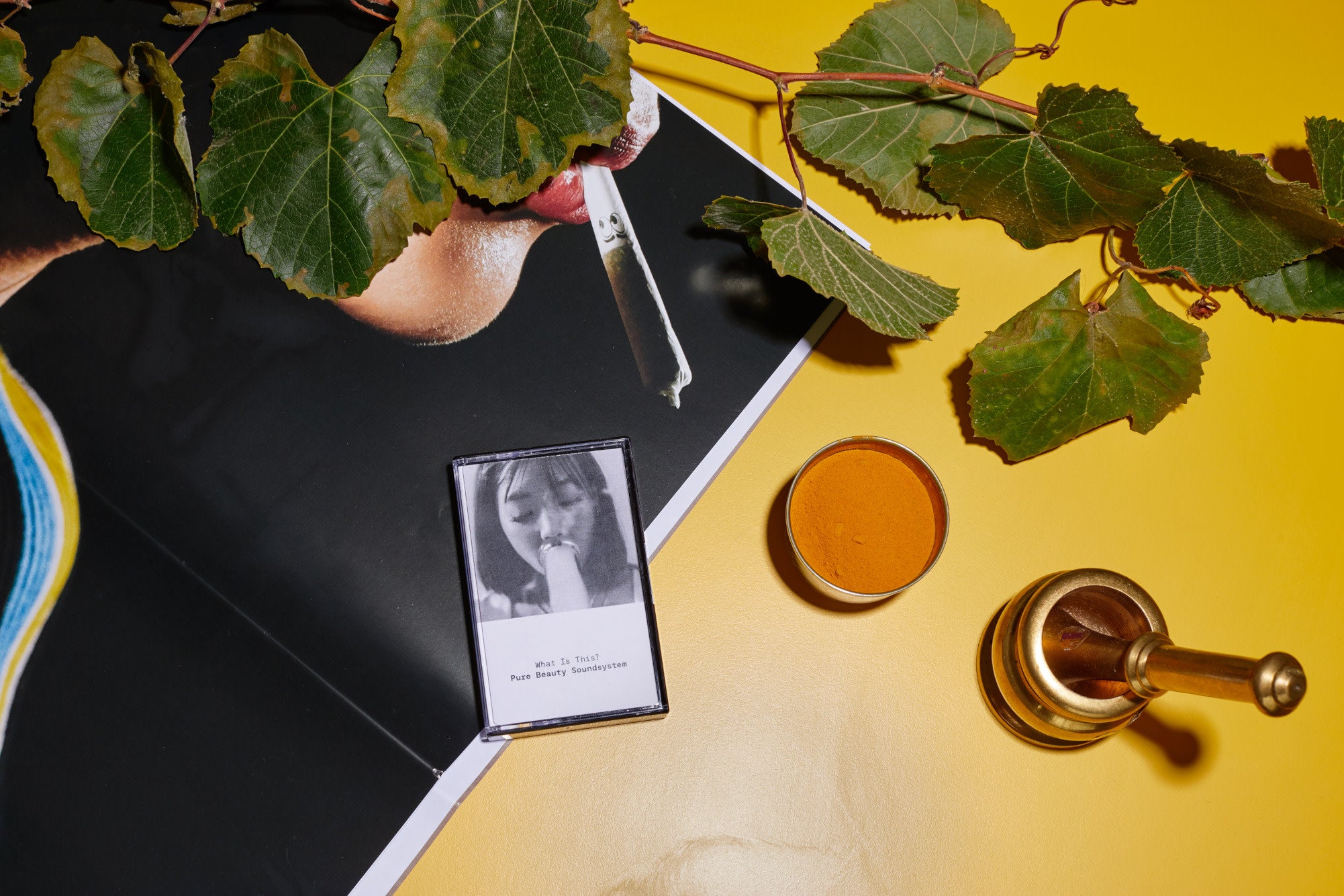
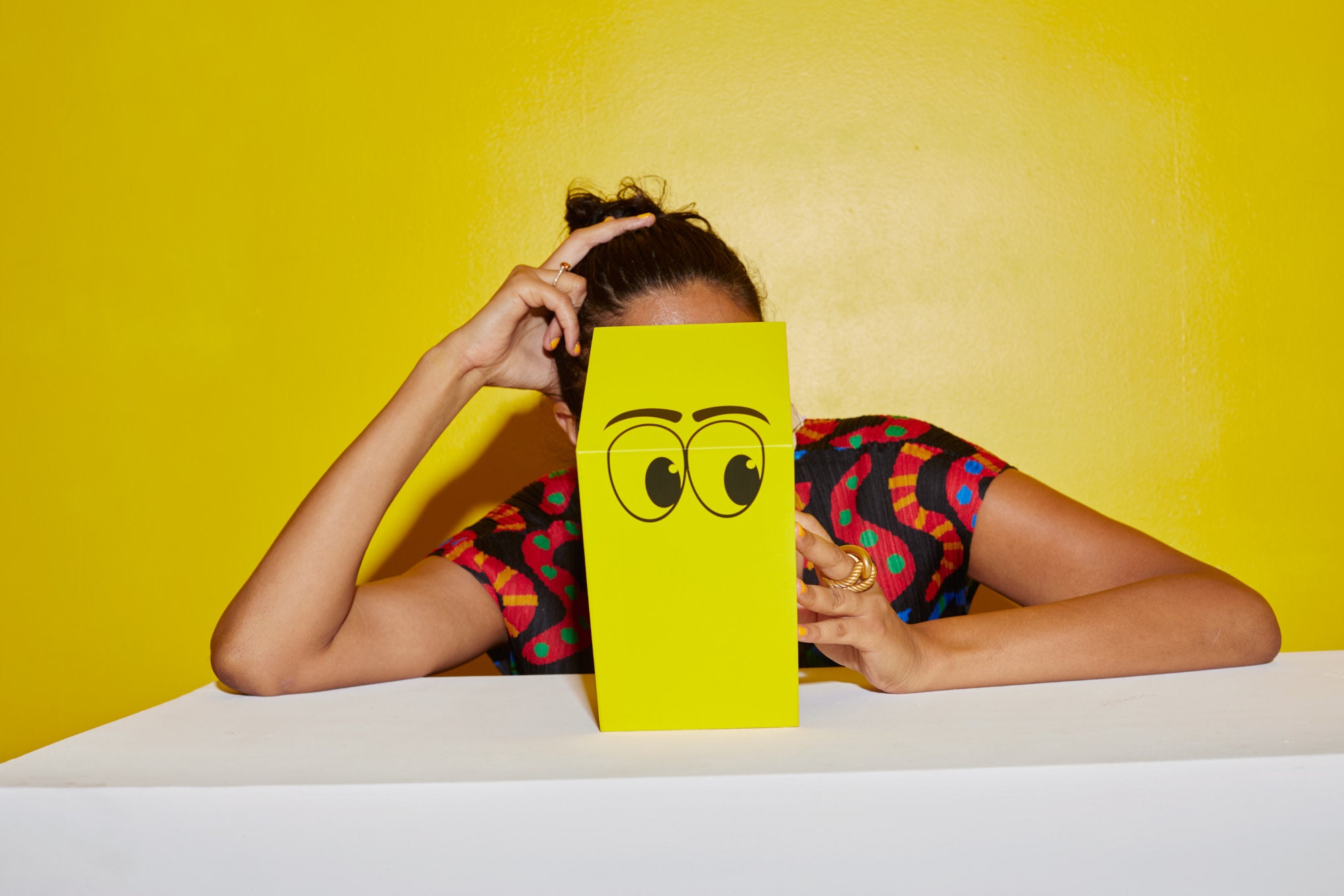
The Pure Beauty CEO and co-founder on injecting politics into weed, the comfort of stoners, and not being the face of the company.
AS TOLD TO GOSSAMER
The first time I smoked weed was in college. It was out of a giant bong and it put me on a whole other planet. I ended up totally freaked out, and then didn’t smoke for a while. I think a lot of people have a similar story.
I wasn’t that experienced with drugs, and I didn’t have that much understanding of what it’s like to be put in an alternate universe. Whether it’s acid or any other drug, I think the first time that happens , it can put you in a scary place. That’s why I think microdosing is so amazing, but it’s weird to me that at that time, people never thought to do it. Instead of easing into it, it was like, “You’re going to take this giant tab of acid.”
Smoking put me into this place where I was just like, Oh, shit, weed is really scary. I would say it took me five or six years before I picked it up again. I had just moved to New York. I had a good friend who smoked all the time and eventually, I was just like, Ohhh. I was more ready for it. That’s when I realized, Holy shit, weed’s amazing and so fucking deep and life changing.
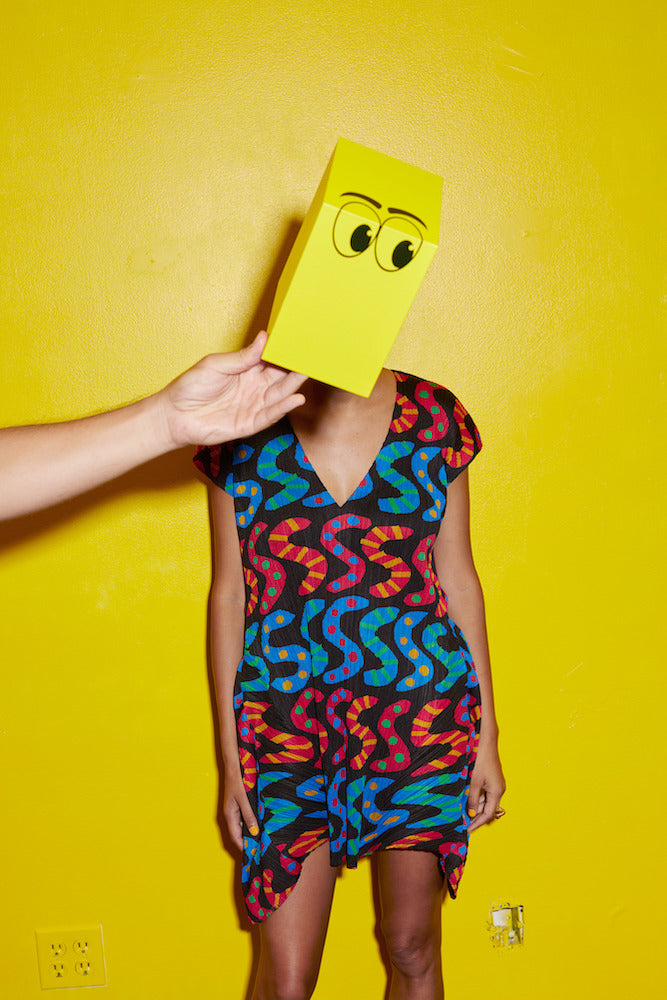
I got super into it. There are people who like weed, and then there are people who really like weed. I quickly became the one that always had the weed. I liked it enough to order the delivery service and smoke by myself and be the one who always had it at the party. Ever since I made that second connection, it’s been an enduring love.
As I’ve gotten more comfortable with weed, I also know that wherever I end up, I can handle it. I feel like I’ve gotten so intimate with it that I understand every level of high. That’s why I like meeting other people who are stoners, because they understand that, too. You can speak that same language together, where any feeling or weirdness you’ve experienced while stoned, they completely understand. It’s like you’ve traveled to the same country or something.
I’m just very comfortable being like, “Hey, I’m pretty stoned right now. I might sound weird.” I always feel an immediate comfort with people who get really stoned. If I’m in an environment where there are people who don’t smoke a lot, I won’t get particularly stoned. But if it’s people who I know get really, really stoned—even if they’re not stoned in that moment—I’ll still feel more comfortable going to the place. It’s almost like stoners can tap into that feeling even when you’re not stoned, once you’ve been there.
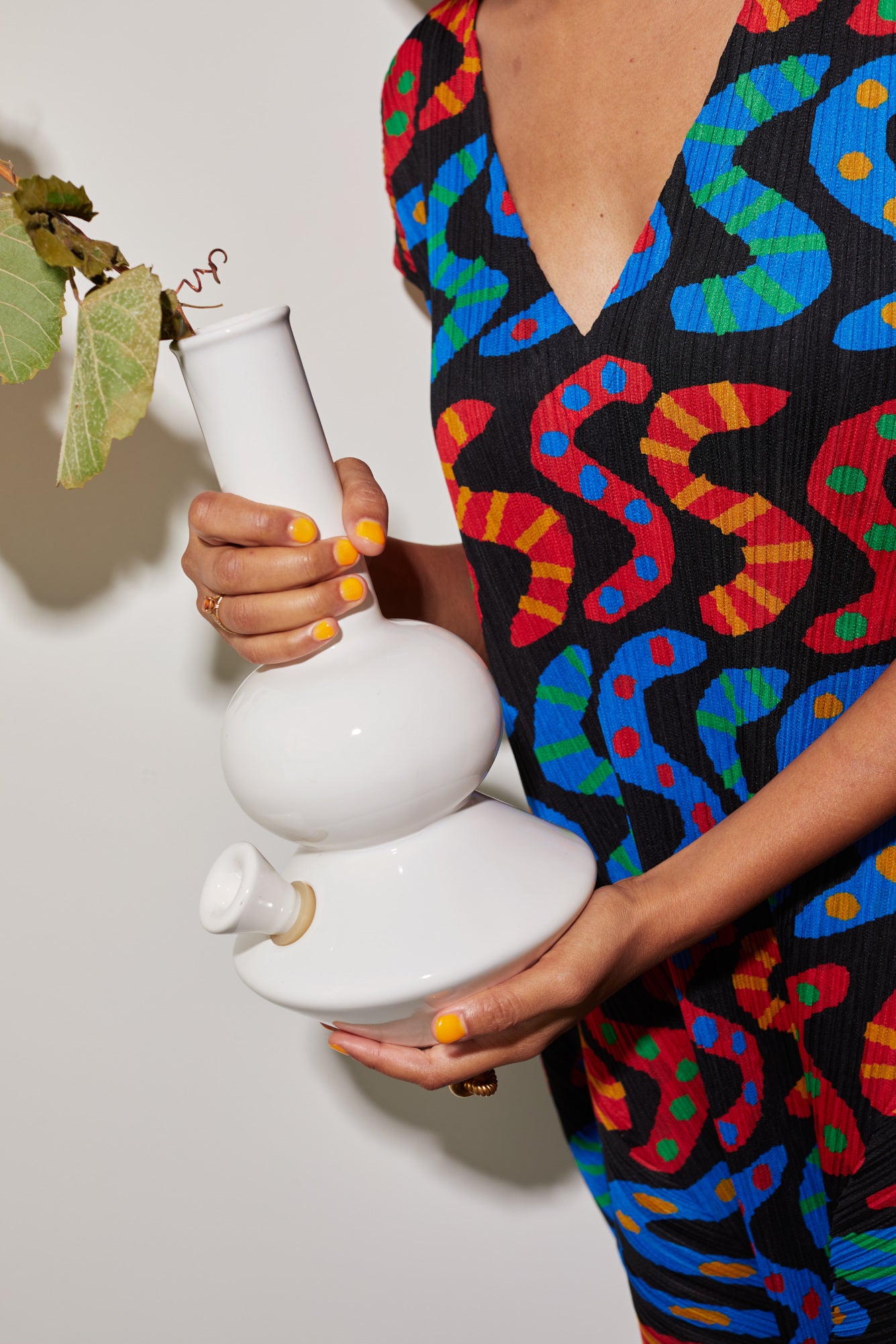
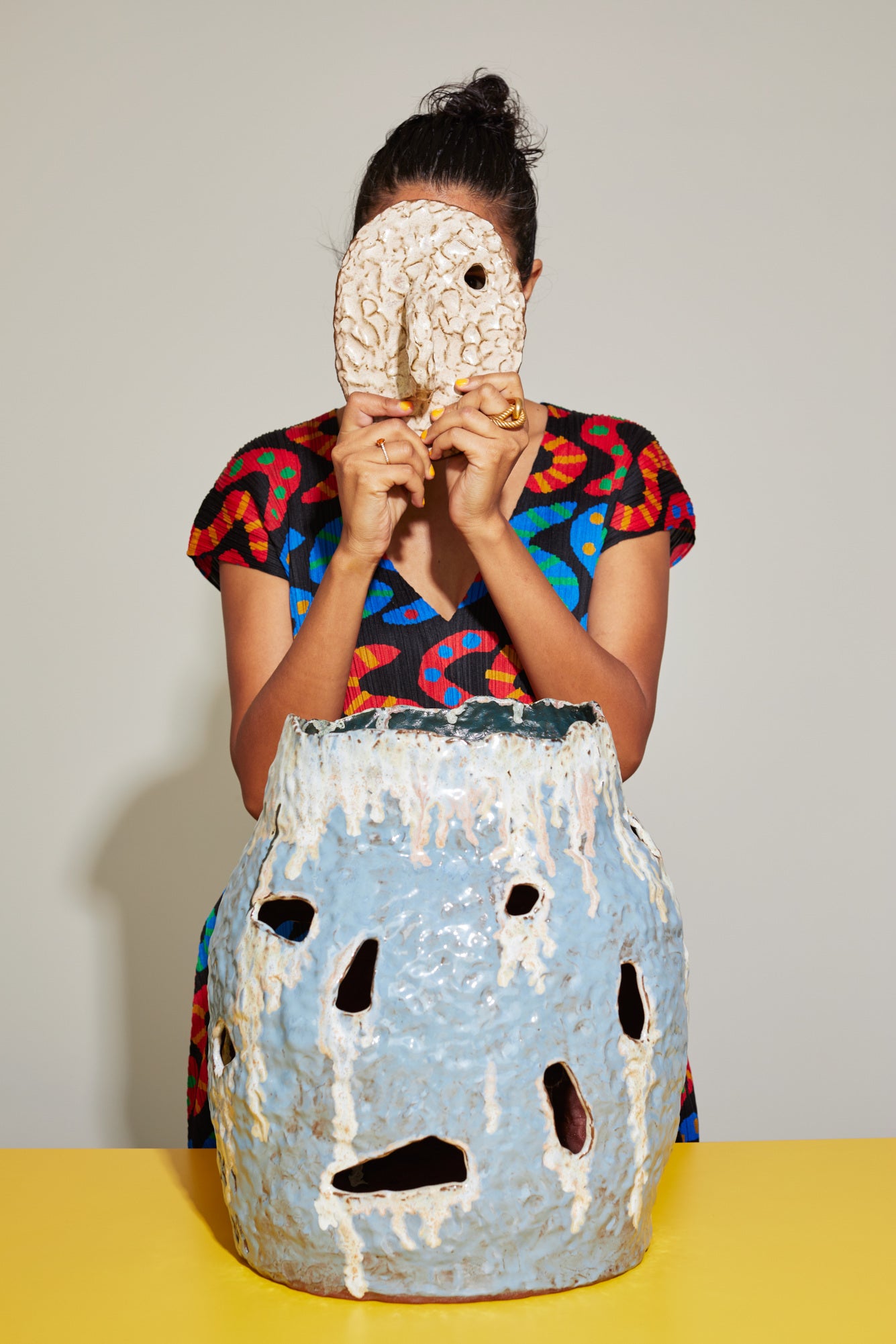
I grew up in San Diego, which is very conservative, very white. I always felt really alienated. Not just because I was one of the few minorities, and people were pretty racist, but because I think I’ve always had a countercultural perspective. This was pre-internet, though, and I didn’t really know that alternative realities existed. Then I went to Berkeley, which is a super political school, and I was like, Oh, there’s an actual language around feeling oppressed.
I wasn’t poor. I understand how privileged I am, but being a minority is a different kind of adversity. Berkeley was very liberating. It gave me the language and completely transformed my perspective, both socially and politically. It gave me a framework to understand the world more holistically.
I was very much a student of Berkeley—capitalism is the devil, the system has to be changed, and all that. I was super idealistic and wanted to dedicate my life to that work. I got really involved in social justice, and from there I went to Columbia for grad school and studied human rights.
I would rather starve and live in the tiniest little shack than have to exist in a super corporate, capitalist environment.
I fell in love with New York. I started doing training for science interventions for community-based organizations. A lot of my work was with post-incarcerated populations. I hadn’t really made the connection between my relationship to weed with the war on drugs, but being involved in that work and seeing its effects truly firsthand was super eye-opening. But I kept my smoking private.
I eventually got too jaded by all the political stuff. It’s fucking hard and you’re like, Oh, well, the system needs to change. I can’t do it all on my own. So I started a catering business. But that’s a whole other five hours of conversation.
I like having my own businesses because I don’t like being a slave to the man. I like the freedom, and this is part of the reason I work in weed now: to be able to do whatever I want.

I would rather starve and live in the tiniest little shack than have to exist in a super corporate, capitalist environment. But what was crazy to me was that even working in a nonprofit environment felt very corporate. The CEO of our division was this white guy who was just so dumb and so arrogant. This isn’t the inspirational story people want to hear, but I was just like, Wait, if he can have that position and be so dumb, why am I not doing my own thing? Why am I not the CEO then?
That’s our ethos at Pure Beauty, too. I think the reason that we’ve been successful, if you want to call it that, is because my two partners, Irwin and Tracy, and I are all on the same page.
In some ways, we started Pure Beauty very naively, being like, “Let’s just do this, it sounds fun.” We had no idea how hard and painful it was going to be. We started the company because we wanted to do something that expressed our love and feeling for weed in a way that reflected our own ideals and ethos. I think the reason that it’s resonated with people is because—at least when it hasn’t been super painful dealing with all the regulations and all the hardships of everything—we’re working with people we love.
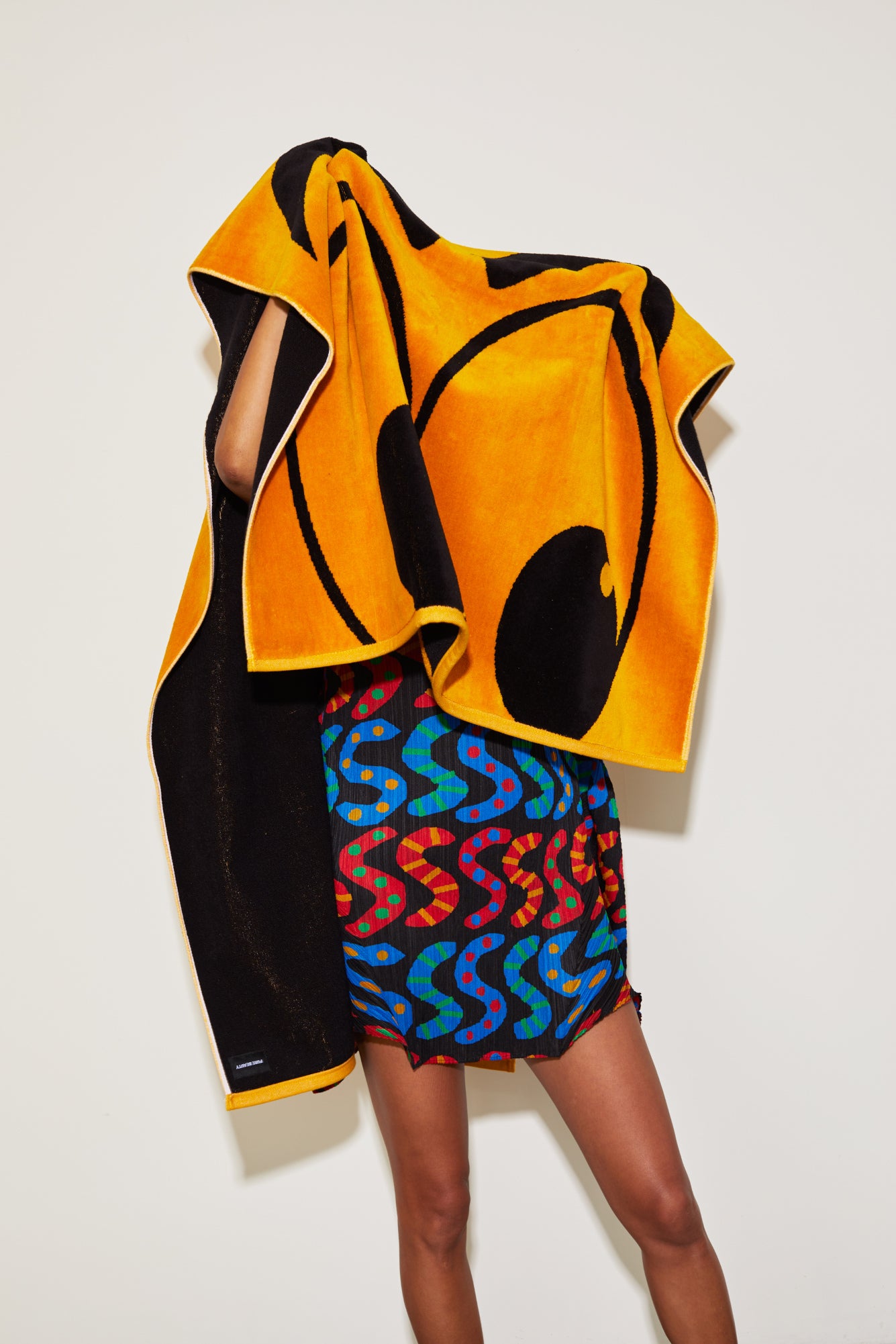
We’ve found people, really good partners in this industry. It feels like we’re getting away with something. Like, “Can we do this? Fuck it, let’s just do it.” It’s been so fun. And again, that’s because we’re partnering with people who are like-minded to us. I think that joy and energy really comes through in our work.
The quality of our product is super important. Usually it’s like, “Oh, your stuff is beautiful and your product is good, but you have a billion layers of plastic and it’s clear you don’t actually care about people.” You know how you can go to a restaurant and it’s super beautiful and the surroundings are amazing and you’re just like, Holy shit. They put $2 million into this, they got all the best architects and designers, and it’s incredible, but then the food is bad. It’s so disappointing.
But when you get both, that experience is mind-blowing. We want to give people that full sensory experience. We want you to look at our product and our imagery and feel something. And we want our product to actually live up to that feeling. I don’t know how many times I’ve heard people talk about other brands with beautiful packaging but whose product is just trash. We wanted our weed to take you to the next level.
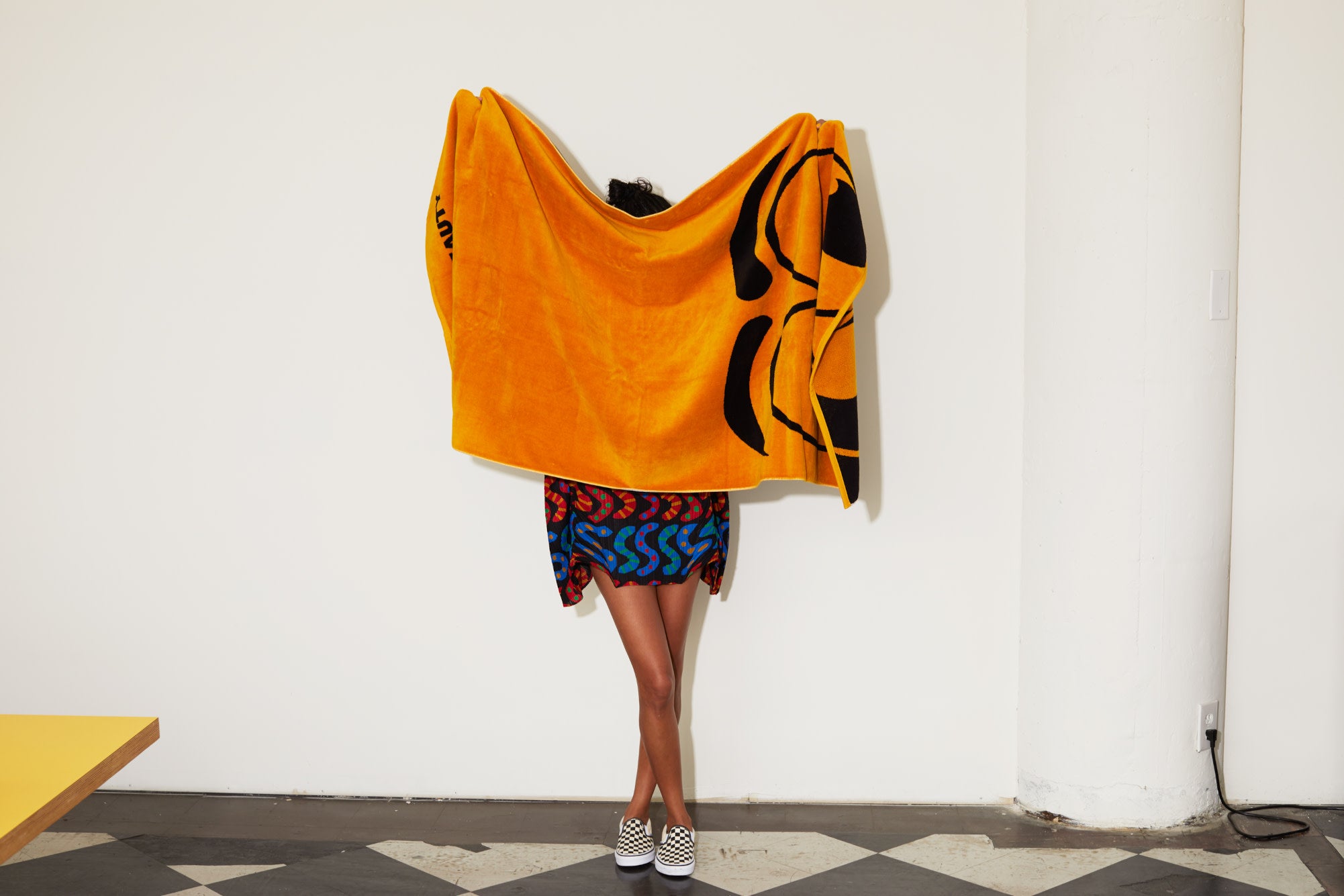
We have an indoor grow. I prefer indoor flower, but it’s been criticized for the energy usage. But in terms of sustainability, all of our electricity is generated on site using micro-turbines and a little bit of natural gas. It’s not from the grid. A typical plant takes anywhere between 250 and 650 gallons of water. That could be indoor, outdoor, mixed light, whatever. But all of our water is actually pulled from the air using HVACs and dehumidifiers and then it’s just recycled. So, we take nothing from California tap, which I haven’t heard of anyone else doing. It’s a big deal, because California is a drought state, and with more and more flower grows coming online, that’s a huge water suck.
It also means there’s no runoff, because even though we’re testing for pesticides and things like that, there are still nutrients and fertilizers that can get into the soil that then run off into the surrounding water supply that can be toxic for indigenous species. Our team is constantly iterating on how to improve. All of our soil is donated to public parks. We have a relationship with the city and they come and pick it up.
We’re just constantly thinking about those things. We did the first plant starch mylar in cannabis—mylars are the child-resistant bags—and that took us a year and a half to do. It’s industrially compostable. I hate talking about these things without qualifying it by saying, “We’re not on a high horse.” There are so many things we’re doing that I wish we could do that better. But our intention is there and we’re trying.
Social justice is especially important to me and I think the issues . . . that catalyzed BLM, are so clear and straightforward they shouldn't even be considered political.
After George Floyd's murder, I think a lot of people in the space were not sure what to do. There was kind of a period of silence. A lot of the bigger companies didn't say or do anything, or if they did, it was after a long time had elapsed. Social justice is especially important to me and I think the issues underlying this case, that catalyzed BLM, are so clear and straightforward they shouldn't even be considered political, especially in an industry that is riddled by these same issues.
We had the idea to do a strain called A.C.A.B., thinking that it was a little bit subversive but fine, everybody is on the same page, no big deal. We wanted to connect it to something we cared about, so we arranged to donate all of our proceeds to Michael Thompson and the Last Prisoner Project. We got everyone in the supply chain to donate their margin and we charged a little extra for it, which people were happy to pay. One dispensary, Serra, actually did a matching donation, doubling their total. All in all, we raised $15,000, which is pretty great for just a little thing like that, and it also garnered a bunch of attention for the cause.
Right before it launched, a number of our vendor-partners got cold feet and pulled out. I started to get really nervous about receiving a negative response because as much as I believe in the importance of speaking out on meaningful issues, I also really hate conflict and offending people. So I went pretty deep into the history of the police and prepared a thoughtful preemptive response to what I thought would be an inevitable backlash. But ultimately, we got so much love, appreciation, and positive feedback. We only got one negative person who came after us but that was far outweighed by people DMing us to thank us. Literal love letters and one of our most-re-shared posts ever. And after the initial launch, many of the same vendors came back to us asking if they could still participate but by that point we were completely sold out.
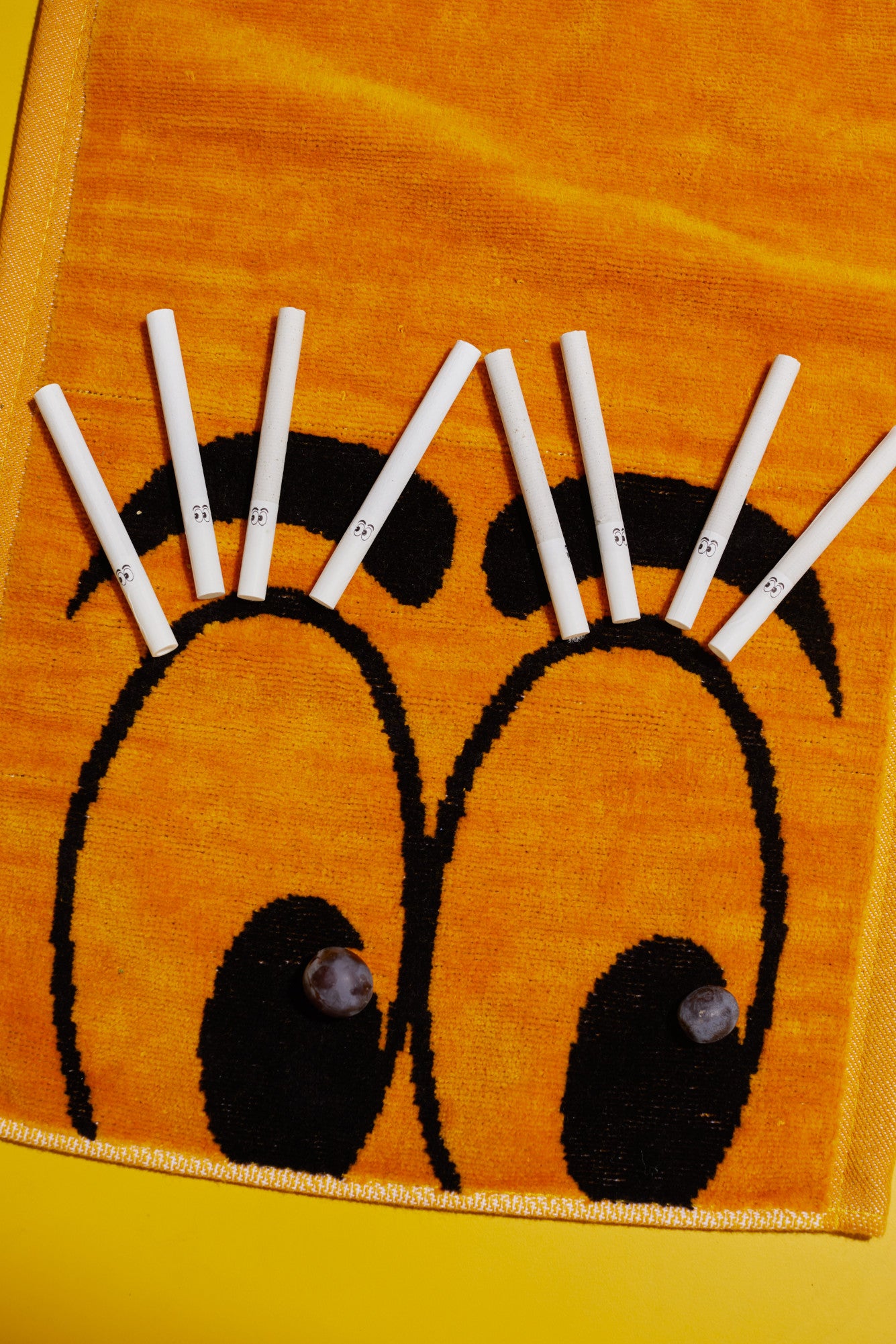
Given that my dad’s Indian and my mom’s Mexican, I think my parents are inherently risk-takers. They’re super innocent, conservative people, but they’re very open-minded. At the time they were married, interracial marriages were very uncommon—more so in the Indian community than the Mexican community. My dad’s family is super caste-sensitive. But they loved each other.
They’re also pretty practical. My dad loves seeing Indian people on TV, so when Dr. Sanjay Gupta started talking about cannabis on TV, he was like, “Oh, if he’s saying it’s okay.” My dad’s an engineer, so when we first started getting into the industry, he built a little indoor grow in my old bedroom. They don’t smoke, but they love edibles and they lowkey love getting really stoned. They’ll be like, “I don’t feel anything.” And then they’re at 50 milligrams, and they’re like, “Oh, yeah, I kind of feel it.” It’s super crazy.
With Pure Beauty, the reason I don’t want to be the face of the brand is that I think the value for us is the feeling you get from what we do—the visuals, the ideas, and the community of like-minded people. So I don’t want to make it about me or my partners, personally. It’s so important to us that the brand speaks for itself and that people experience it in a very unadulterated way.
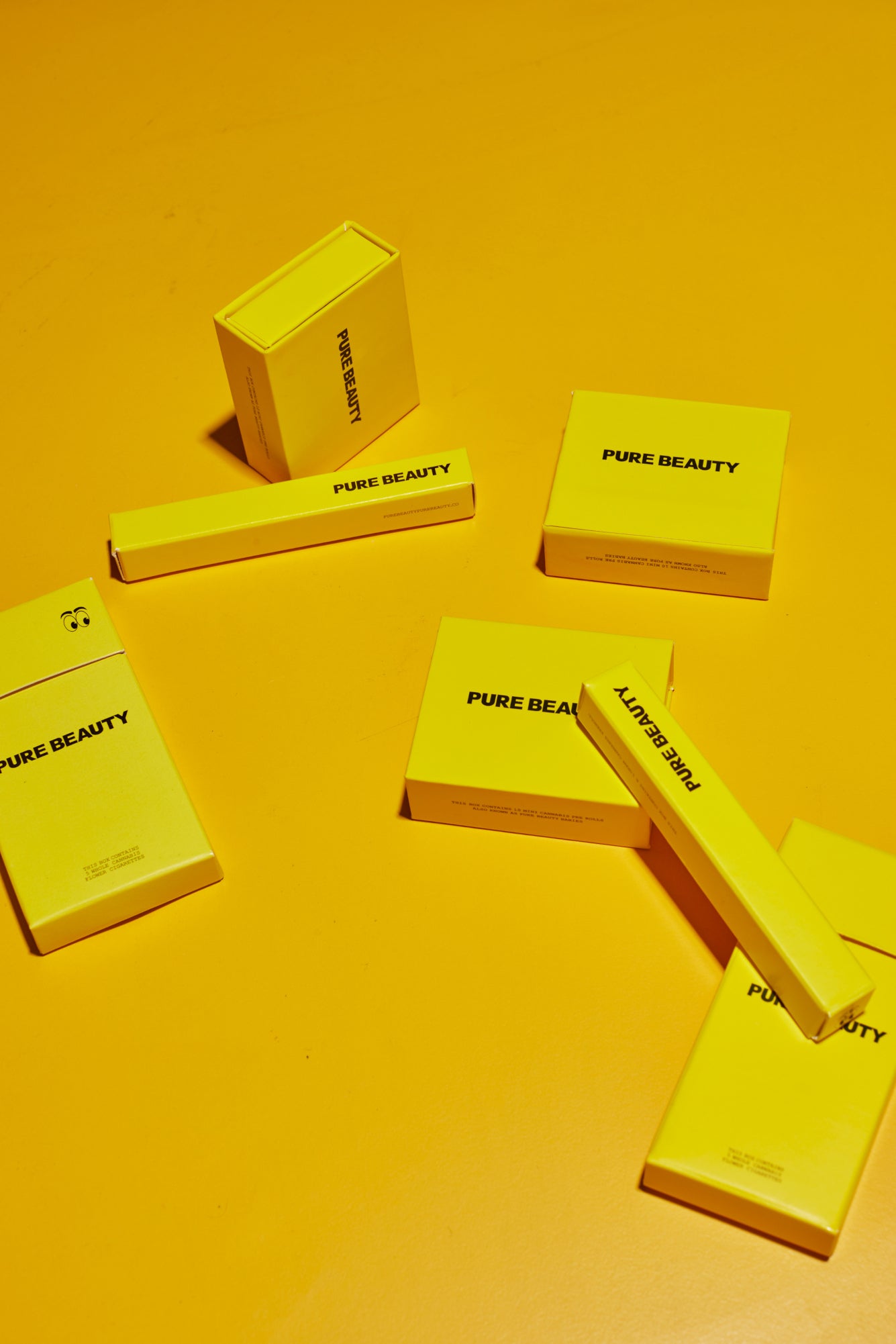

One thing about being a female founder—and just a founder in general—is that you become almost part of the brand. In light of both #MeToo and the Black Lives Matter movement, it’s such a refreshing alternative to all the white men in suits. So, I appreciate people celebrating female founders and founders of color, but at the same time, the media attention doesn’t necessarily reflect what’s actually happening.
I can only speak for the cannabis space and from what I’ve seen personally, but if you look at the top companies, the brands that are making shitloads of money, the multi-state operators, and the venture capitalists, I think we’ve only ever met with two female-led VCs. I don’t think there was a single Black or Latinx person at any of the VCs that we met with.
The other thing is all these panels that are happening now around diversity and leadership and social equity—it’s all women and minorities on the panels and attending the panels. It’s just preaching to the choir. Why are we, the minorities in this space, the ones having this conversation when it should be the people that created the systems of oppression in the first place? Where’s the guy who has $200 million to deploy and is giving it to their huge companies? They’re the ones that should be on that panel.
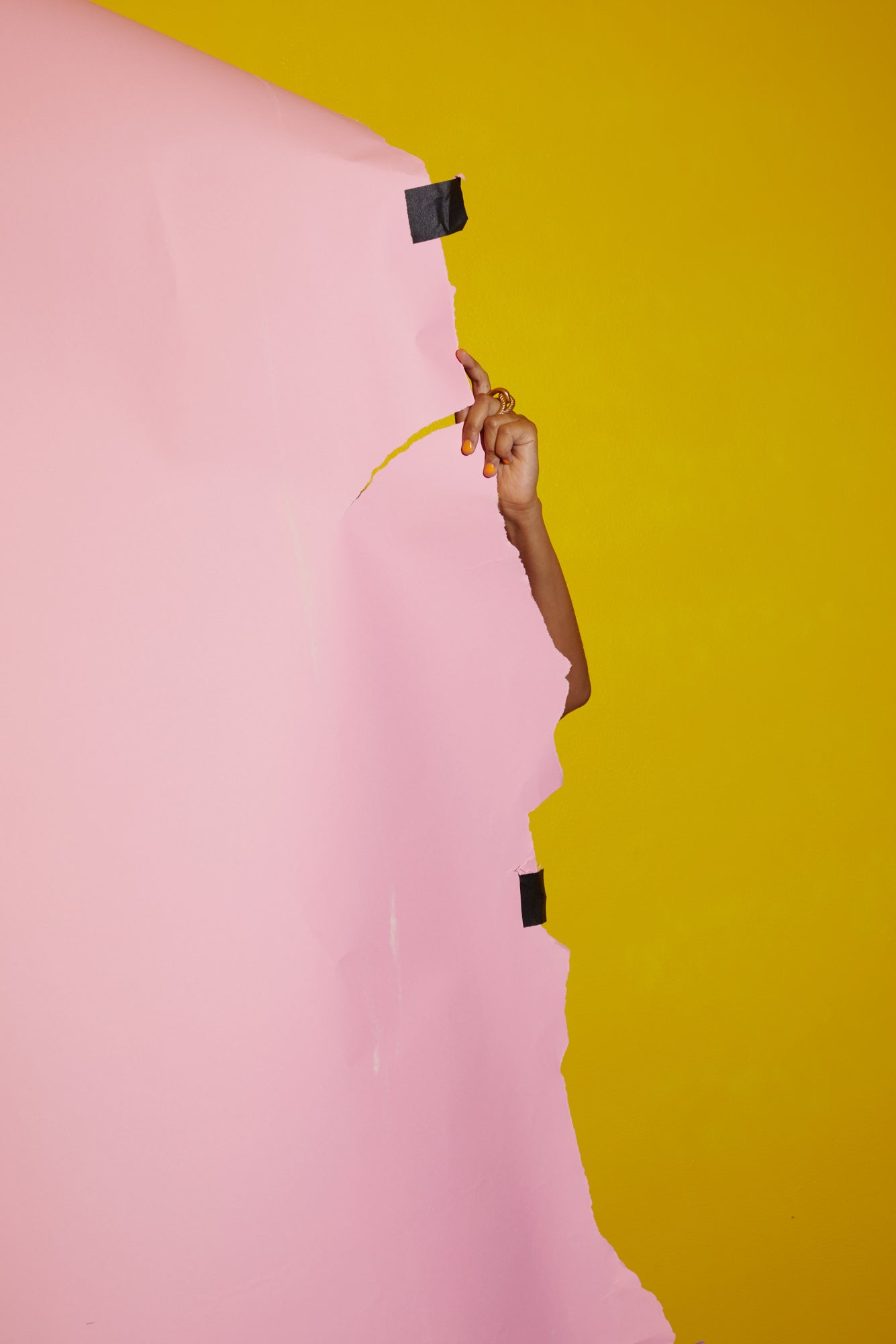

This interview has been edited and condensed for clarity. Imelda Walavalkar photographed by Maggie Shannon in Los Angeles. If you like this Conversation, please feel free to share it with friends or enemies. Subscribe to our newsletter here.